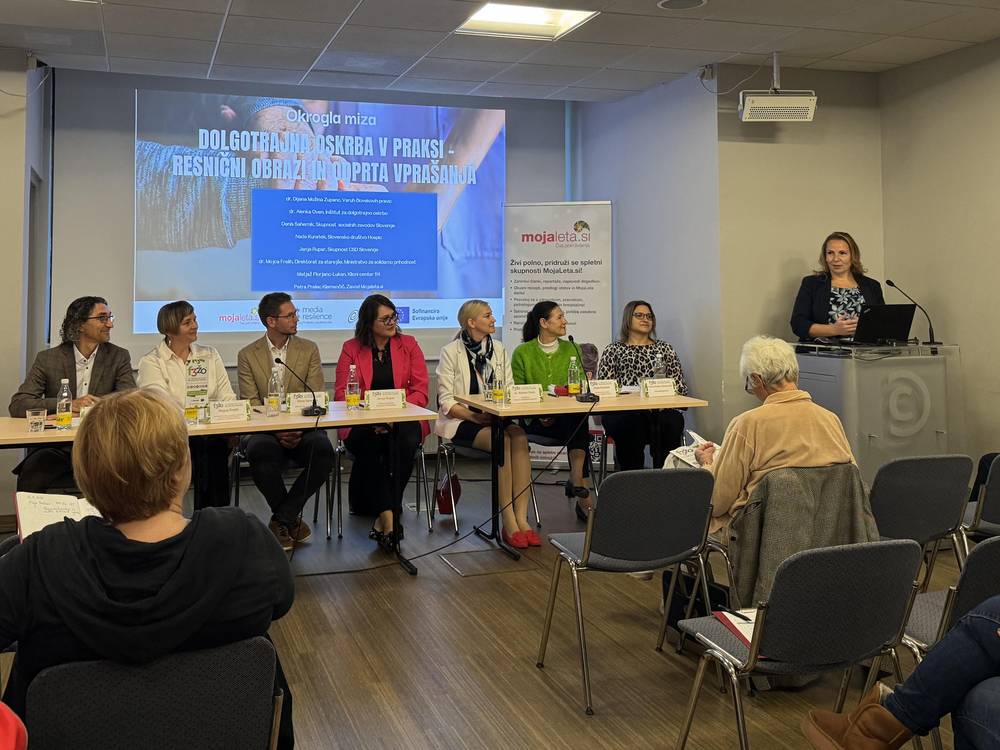On 2 October 2025, Deputy Human Rights Ombudsman Dr Dijana Možina Zupanc addressed participants of the round-table discussion entitled Long-Term Care in Practice – Real Faces and Open Questions, organised by the MojaLeta.si institute as part of the Festival of the Third Age. She emphasised that care for the elderly and other vulnerable groups must be designed with respect for an individual’s dignity and enable their participation in decisions affecting them.
The Deputy Ombudsman also stated that the right to a safe and dignified life has no age limit and that it is crucial to ensure equal access to home assistance, community nursing services, palliative care, and other forms of support in all municipalities. “In practice, the differences between communities are significant. As a result, many older people are left entirely to their own devices, leading to feelings of helplessness, loneliness, and distress. For a welfare state like Slovenia, this is unacceptable,” she stated.
The Deputy Ombudsman also reminded that the institution of the Human Rights Ombudsman has long advocated a shift from institutional to community-based care, while emphasising that safe, dignified, and professionally supported institutional care must also be ensured, as it will remain essential for some individuals. To achieve this, the state must address the shortage of personnel, poor working conditions, and low wages for employees, which pose serious risks to the quality of care, she said.
She welcomed the initiative of the event organisers to give a voice to those who face the challenges of the long-term care system every day – older people, their relatives, and care providers. She expects their experiences and expectations to serve as a guide for decision-makers, ensuring that long-term care provides real support for everyone, regardless of age, place of residence, or personal circumstances.
According to the Deputy Ombudsman, the future of long-term care lies in accessible, individualised, and community-based forms of support that enable dignified ageing and high-quality coexistence across all generations. “The solutions we are discussing today will only be meaningful if we support them in practice by upholding the values that connect us. As a society, we must strengthen our sense of responsibility toward one another and instil in future generations respect for older people and solidarity as a fundamental value for coexistence,” she concluded.

![[Translate to English:] Namestnica Možina med nagovorom](/fileadmin/_processed_/4/d/csm_Dijana_2230498e4e.jpg)